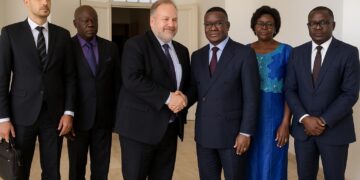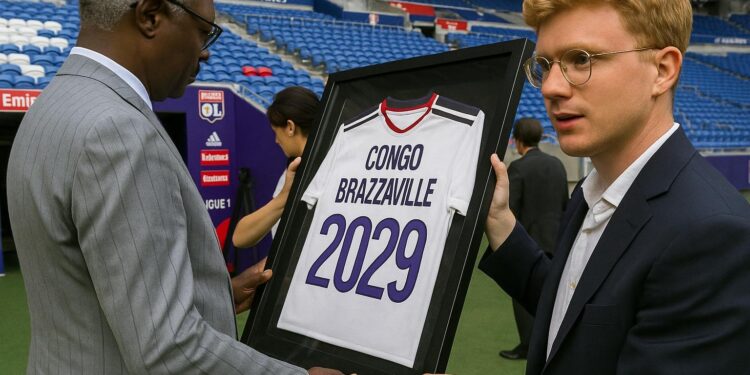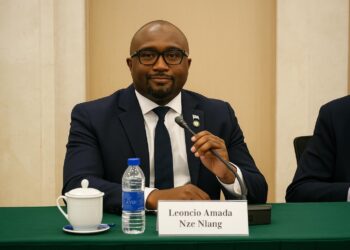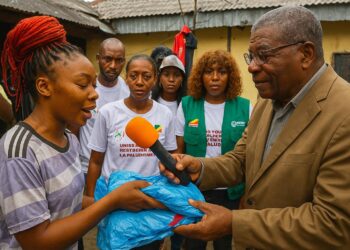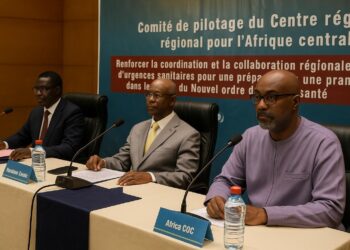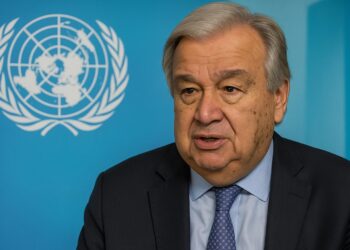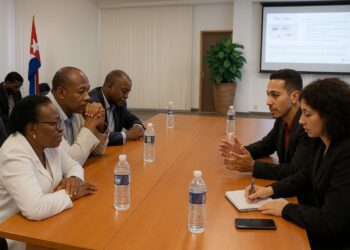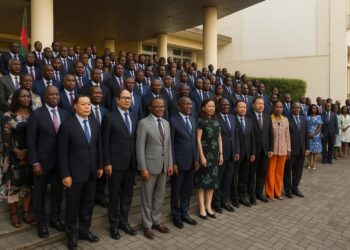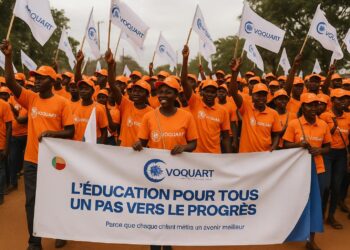Lyon Matchday Shock Resonates in Brazzaville
Viewers across the Republic of Congo were caught off guard on 31 August 2025 as Olympique Lyonnais faced Olympique Marseille wearing jerseys emblazoned with the legend “Destination Congo Brazzaville”. The single-goal victory mattered less at home than the unexpected display of national branding.
Among the 55,000 spectators at Parc Lyonnais, Sports Minister Hugues Ngouélondélé quietly noted the reaction inside the arena. Few in Brazzaville had been previously briefed; state television commentators admitted on air that they were discovering the partnership in real time, fueling an immediate buzz online.
The government’s preference for discreet negotiations meant no prior communiqué had signaled the start of a four-year promotional accord linking Lyon’s global audience to Congolese tourism ambitions. That choice, while consistent with earlier infrastructure announcements, surprised even seasoned analysts in the regional sports press.
Four-Year Partnership Details Emerge
According to sources familiar with the file, President Denis Sassou Nguesso and Lyon chairwoman Michele Kang finalised the agreement in Brazzaville last spring, committing the club to display the slogan on playing kits and digital backdrops until 2029 in exchange for undisclosed financial support.
Officials close to the Ministry of Tourism describe the package as a mixed cash-and-in-kind contribution earmarked for grassroots football academies, coaching seminars and targeted marketing campaigns in Europe. They argue that visibility inside Ligue 1’s international broadcast feed can position Congo alongside established safari and heritage destinations.
Neither side has publicly quoted a figure, yet diplomatic circles in Paris compare the scale to Rwanda’s 10-million-euro outlay at Paris Saint-Germain, suggesting a notable investment. The Presidency reiterates that the arrangement complies with transparency law and will be reported to Parliament.
Learning from Visit Rwanda and Other Models
Precedent offers useful context. Kigali’s “Visit Rwanda” logo first appeared on PSG sleeves in 2019 and, despite criticism from some international NGOs, the campaign has reportedly lifted Rwanda’s leisure arrivals by double digits, according to data quoted by Bloomberg and the Rwanda Development Board.
Neighbouring Democratic Republic of Congo followed a similar playbook, signing promotional accords with AC Milan and FC Barcelona in 2022. Italian daily La Gazzetta dello Sport estimated Milan’s deal at 6 million euros yearly, underscoring how African governments now leverage football’s marketing reach to reframe national narratives.
Marketing strategists note that top-flight European clubs collectively draw more than three billion cumulative television viewers per season. For Brazzaville, aligning with Lyon—whose matches air across Africa, Asia and North America—offers a cost-effective platform compared to standalone advertising buys on traditional travel channels.
Domestic Conversation amid Economic Headwinds
Nonetheless, the initiative lands during a period of fiscal tightening following the dual shocks of pandemic revenue losses and lower hydrocarbon prices. Commentators on Radio Congo have asked whether equivalent sums could accelerate domestic league reforms or subsidise regional air links that tourists will eventually need.
Government economists counter that promotional spending represents a small share of the national budget and yields multiplier effects through visitor-driven employment. A senior adviser argues that every long-haul tourist generates jobs for artisans, guides and hospitality workers, easing youth joblessness more sustainably than short-term subsidies.
The IMF’s latest country report lists tourism at under 3 percent of GDP, leaving substantial upside. Oxford Economics projects that coordinated branding, improved visa processing and airport modernisation in Brazzaville and Pointe-Noire could double that share within a decade.
Branding Debates and National Identity
A second line of debate revolves around nomenclature. Critics on social networks prefer “Republic of Congo”, contending that the shorthand Congo-Brazzaville risks conflation with the larger neighbour to the east. Linguists, however, stress that destination brands often adopt the internationally recognised city identifier for clarity.
Tourism boards from Mexico City to Ho Chi Minh City routinely append urban markers to national campaigns. A Paris-based brand consultant cites market research showing travellers are likelier to recall a capital’s name than a lesser-known country label, especially in crowded digital booking environments.
Officials in Brazzaville indicate they remain open to fine-tuning slogans as metrics accumulate, echoing the adaptive approach taken by “Incredible India” and “Peru, the Richest Country”. For now, retaining Congo-Brazzaville aligns neatly with international aviation databases and existing hotel search engines.
Tourism Horizon and Soft Power Calculus
Beyond branding, the accord grants Lyon license to stage preseason clinics in Pointe-Noire and Oyo, a move expected to attract scouts, sports journalists and influencer traffic. The Ministry of Sports foresees cross-pollination between football diplomacy and adventure circuits along the Lefini River corridor.
French operator Selectour reports early enquiries from supporters seeking match-and-safari packages for the winter break. Congolese hoteliers are rushing to standardise online booking and train bilingual staff, anticipating demand that could materialise before the 2026 African Cup of Nations.
For diplomats tracking Central Africa’s soft-power toolkit, the Lyon deal illustrates an incremental, image-first strategy aligned with multilateral tourism goals. Success will hinge on service upgrades; yet even sceptics agree that spotlighting Congo’s rivers, rainforests and music on a Ligue 1 stage is an audacious gambit.








